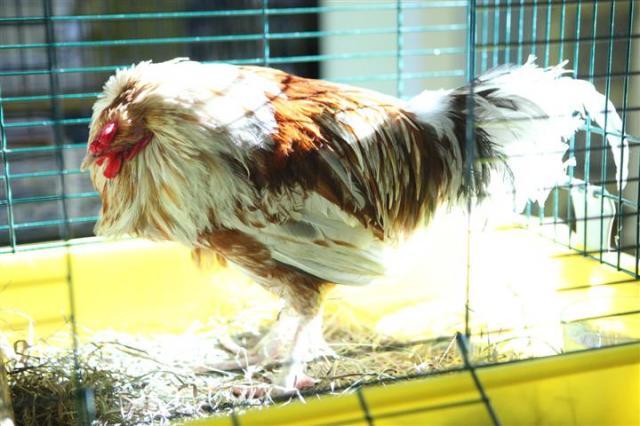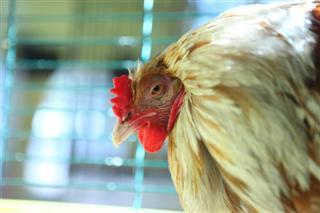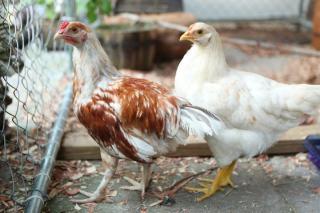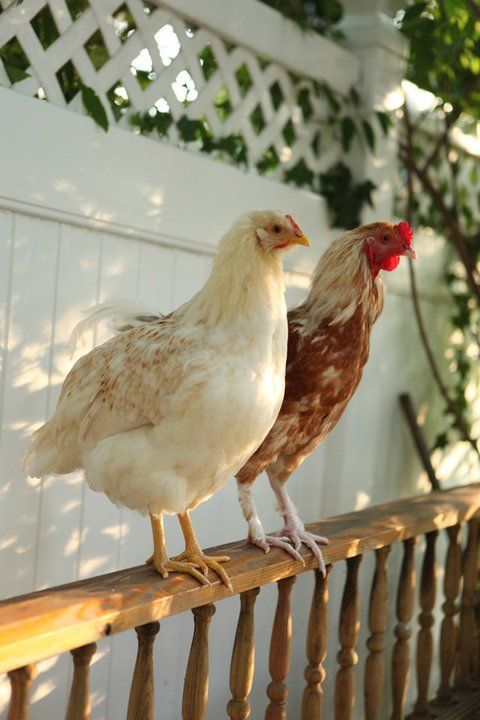- Jan 30, 2011
- 11
- 0
- 22

1) What type of bird , age and weight: 7mth old 4lb rooster
2) What is the behavior, exactly: Presently he has thick mucus in mouth, twisted neck, dropped wings, eyes closing, drunken walk
3) How long has the bird been exhibiting symptoms:
Sneezing and coughing started around 12/15/10.
Took him to avian vet in nyc, was given baytril, flagyl, and calcium supplement after bloodwork.
Got better. Stopped meds.
Then sneezing coughing started up again in a week.
Gave rest of meds and then ran out.
Order of Tylan 50 injectable came and gave orally .35ml for 3 days, then he started having twisted neck.
Stopped Tylan and treated for "wry neck" with polyvisol, vitamin e oil, electrolytes.
It has been 1 week with the above wry neck treatment with no improvement, although he still trys to eat vigorously.
4) Are other birds exhibiting the same symptoms: His two hens are not showing symptoms although they are eating less, not laying, and seem depressed...He has been isolated for about 2 weeks.
5) Is there any bleeding, injury, broken bones or other sign of trauma: No, however he was severly attacked during Thanksgiving possibly by a turkey he was housed with (turkey got mad during TG?! : ) He fully recovered although this could be when he caught something from other birds...
6) What happened, if anything that you know of, that may have caused the situation: Possible contamination from other flock as described above.
7) What has the bird been eating and drinking, if at all: Raw beef (b/f idea to cut it to look like worms), sweetcorn, bread, pasta, tuna.
8) How does the poop look? Normal? Bloody? Runny?: Runny light yellow beige, sometimes greenish,
9) What has been the treatment you have administered so far?: Described above on #3
10 ) What is your intent as far as treatment? For example, do you want to treat completely yourself, or do you need help in stabilizing the bird til you can get to a vet?
Will try anything, but there is almost too much info on the internet. I want to figure out what those symptoms combined is pointing towards. Is it coryza, EE, mareks, pastuerella??? Does he need more baytril? Continue Tylan50? Sulmet? Terramycine? Continue vitamins? They are my first chickens. Please help me. He looks like he's barely hanging on (until he sees the raw beef) dont want him to suffer but also want to try our best to save him. He is our adored pet.
11) If you have a picture of the wound or condition, please post it. It may help: Will post when I figure out how.
12) Describe the housing/bedding in use:
Outdoor coop in yard is a large 5ftx10ft dog run with roof and insulated. Hay, dirt, stone on floor. Usually out in the yard free-ranging. Cleaned daily.
We bring the 3 of them indoors at night due to neighbor complaint of rooster (he hasnt crowed in a while since he got sick)
Indoors we use XL dog kennels with newspaper, perches, hay. New newspaper over poop so they dont walk on it.

Last edited:








